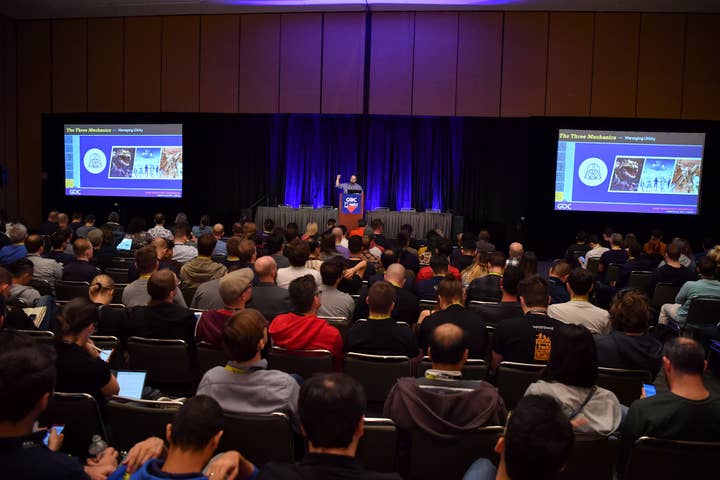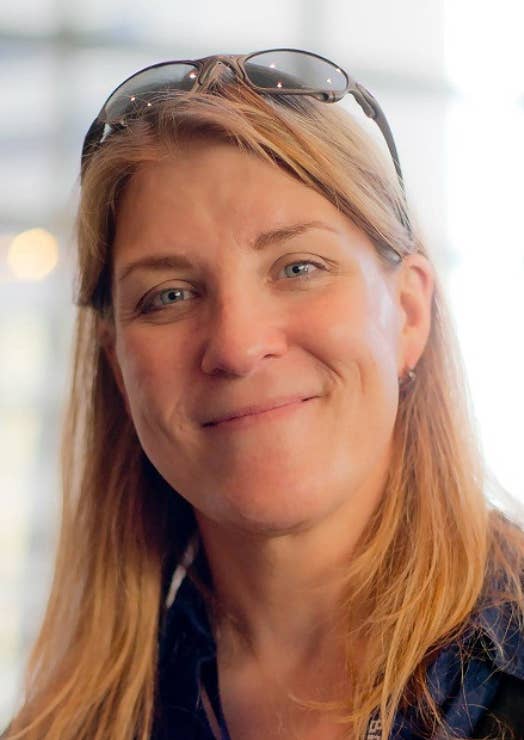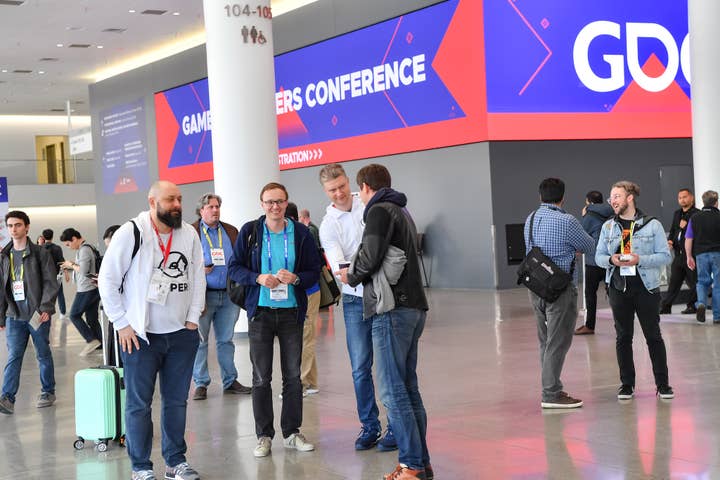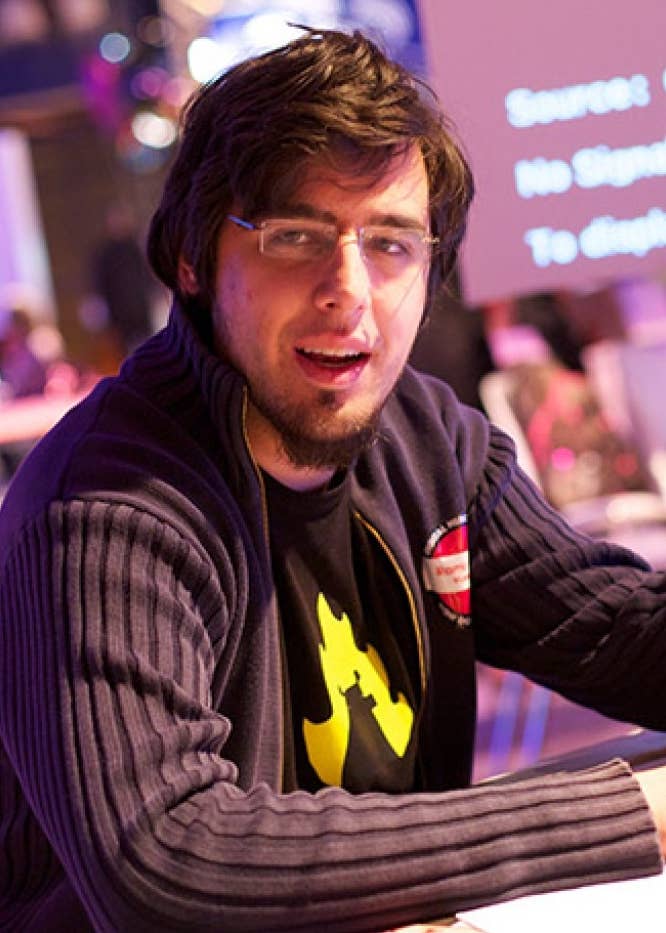Salvaging the opportunites lost by GDC's cancellation
We speak to the people offering financial relief to indies, or alternatives for those forced to still travel to San Francisco
The cancellation of GDC 2020, while expected, has disrupted the development world.
In the face of growing concerns around the spread of novel coronavirus (COVID-19) -- and the subsequent withdrawal of major companies such as Sony, Microsoft, Facebook, Epic and Unity -- GDC's organisers arguably had little choice but to postpone the conference.
Conversely, many attendees have little choice but to travel to San Francisco anyway.
Former IGDA director and Geogrify founder Kate Edwards says the loss of the event is "a major blow" for developers given that GDC is a "keystone event" for that aspect of the industry. Microsoft cloud advocate Em Lazer-Walker adds that the decision has been "potentially career-altering" for attendees, especially those for whom this year was "both the first and possibly only GDC they would ever attend."

"The hope would have been that the extreme cost of traveling to San Francisco, and in some cases the sheer amount of bureaucracy and stress to acquire a US visa, would be outweighed by the professional connections that can only be made at GDC," she says.
"I don't think this is a healthy or sustainable relationship, but right now it really is perceived as the critical event for individuals and small studios in locations that don't have a large regional industry presence to make essential contacts."
Raw Fury CEO Jónas Antonsson adds: "Smaller developers have been hit the hardest. They go for non-refundable options when it comes to flights and hotels, because they are also the cheapest options, so when something like this happens they might have lost thousands of dollars. And that is on top of the blow to morale that comes from seeing all the work, preparation and excitement coming to a quick end."
Vlambeer's Rami Ismail adds that, even if GDC had run as planned, the loss of major companies "wouldn't give [developers] even a fraction of the opportunity normally offered" -- especially frustrating if you have been saving up for years.
"GDC is an investment into a week of opportunity, and while it is a risk to spend this much of your personal or studio budget on [one event], the notion that it could be your professional break into the industry or a place to close a deal that funds your next year of development makes it a generally appealing investment," he says.
"Smaller developers might have lost thousands of dollars - on top of the blow to morale that comes from seeing all the work, preparation and excitement coming to a quick end"
Jónas Antonsson, Raw Fury
"Every deal that was going to be struck organically at GDC will not happen now. Every pitch that occurs after a random run-in on the showfloor isn't happening. Every scouted game that was being shown in the park outside of the Moscone Center as someone walked by isn't getting signed. Every inspired decision that would come from an in-hall chat, an impromptu breakfast meeting, a question during a Q&A, or a yelled conversation at a loud pub at 2am on day three of GDC won't happen."
Few have criticised the decision not to run GDC this month. As Ismail observes, a global viral outbreak is impossible to predict, and there is no established playbook on how to handle such situations. He does, however, express frustration with the fact the conference has been postponed rather than cancelled.
"Going to San Francisco isn't easy or cheap, even for established independent developers, and the idea that despite our losses and loss of opportunity many will be able to just 'go in the summer' for what is likely to be a minor version of the most impactful offline games conference in the world is a little tone-deaf," he says. "That said, it's impossible to say whether the US will have an adequate response to COVID-19 by summer, so I'd be hard-pressed to suggest anyone make an investment there."
Antonsson adds: "I would have liked to see them keep their meeting system open so people connected through there could have used it to make other arrangements."

Edwards adds that, for all the disruption this postponement has caused -- especially to smaller business -- it's crucial to remember the games industry is "actually an aggregation of very passionate people, not a faceless machine."
"It's important to show empathy for people's circumstances," she continues. "That includes empathy for the GDC organisers; they certainly didn't want to see their event be impacted like this."

In the wake of GDC's cancellation, and with so many developers compelled to salvage what they can from the investment already made, a number of alternative events have sprung up over the course of the past week, including Edwards' Plan B Project.
This games industry gathering will run throughout the week that would have hosted GDC, giving speakers a platform to deliver the talks they have poured hours into and developers a central place to meet. Thanks to support from PaymentWall and MeetToMatch, this will be held across two -- potentially three -- venues and is already expecting 150 attendees, with another 500 showing interest.
"I'd rather not see anyone end up with an unplanned holiday, but rather a productive time that benefits their work," says Edwards. "Some people have called me reckless and/or irresponsible for encouraging people to go to San Francisco. But again, the whole point of our Plan B effort, and all the other alternative events being planned, is to support the people who will be there regardless. It's not meant to attract people to consider coming if they've already cancelled their plans, or who weren't planning to come at all."
Similarly, Lazer-Walker is running AltGDC, a free three-day conference expecting around 120 attendees. The livestreaming elements will make this a "hybrid between an in-person meetup and a virtual event," and all speakers will be given videos of their presentations for later submission to the official GDC Vault, the NotGDC project, or wherever else they choose.
"We think it's important to provide a safe and inclusive physical space for the people who will still be in San Francisco, but we think it's just as important to have an opportunity for speakers to share knowledge and for the international game development community to learn," says Lazer-Walker.
"Relief efforts need to be multifaceted, because the consequences of GDC's cancellation are multifaceted. We also need emotional relief for folks in emotional distress"
Anita Sarkeesian, Feminist Frequency
"That said, we know the COVID-19 situation is evolving on a daily basis in the Bay Area, and everyone's safety is the first thing on our mind. If we reach a point where an in-person gathering no longer seems prudent -- and frankly I think that's fairly likely -- we're still hoping to offer speakers individual space in a professional video recording studio with the same livestream and captioning access."
Update, March 6, 2020: Since the publication of this article, Lazer-Walker and her team have decided to drop the in-person element of the event.
Lazer-Walker has also set up a Discord server to help coordinate efforts behind not only her event but the other alternatives that are emerging. This has given organisers a place to pool resources as they scramble to get things in place with just a few weeks to go. There are people with non-refundable fully-paid venues going spare, for example, and others who need a space for their activities -- the collaboration has been natural.
Meanwhile, Antonsson reports that Raw Fury will be one of the publishers still heading to San Francisco to hear pitches and is doing all it can to honour original appointments. If developers have already cancelled their trip, online communications should enable those all-important first meetings, even if it's not quite a full substitute for meeting a GDC.
"The virtual space is definitely less dynamic and personal, but it is one of the tools we can easily use to try to accommodate developers with," he says. "And frankly we do this all through the year anyway. We are always taking pitches and virtual meetings."
Perhaps the most notable and ambitious initiative is the GDC Relief Fund, spearheaded by Wings Interactive. This aims to reimburse the indie developers who have been most harshly impacted by the cancellation of GDC, studios who have saved for years to purchase non-refundable flights and hotels for an event that will no longer happen.

The fund has already raised $90,000, but the list of applicants grows every day so Wings and its partners continue to seek more donations. It is supported by 18 publishers and other games organisations, including Raw Fury, Versus Evil, Nordisk Film Games, GameDev.World, Makers Fund, 11Bit Studios, and the Games and Online Harassment Hotline.
"Despite the loss of opportunity and finances, a lot of people are focusing on helping those more affected than them"
Rami Ismail, GameDev.World
The latter is a new project run by Anita Sarkeesian's company Feminist Frequency. Already in the works to offer support for industry professionals experiencing all manner of abuse and stress-inducing situations, its timely launch has provided an outlet for those whose hopes -- and perhaps careers -- were riding on this single excursion to the US.
"It's understandable for folks to be feeling fear, anxiety, stress, or despair after something that was hoped to bolster their livelihoods suddenly has created a deficit and loss of opportunity," says Sarkeesian. "In moments like this, it can be invaluable to have a confidential and non-judgemental space to talk about these feelings and thoughts with someone who is not only supportive but also not connected to your personal or professional life.
"Relief efforts need to be multifaceted, because the consequences of GDC's cancellation are multifaceted. We need real financial relief for folks in financial distress, and we need real emotional relief for folks in emotional distress."
The hotline is still in its first week, but Sarkeesian tells us it has already received interest from not only developers but also journalists, streamers, parents, and even teachers.
"The conversations we've had while introducing the hotline have really reinforced our belief that this is a necessary and significant thing. We've been hearing over and over that this is something that's been needed for a long time."

Perhaps the most encouraging thing to come out of such a complex and troubling situation has been how quickly these relief efforts have come together. They stand as a prime example of how professionals in the games industry can rally behind each other.
Whether this year's cancellation will prompt people to think harder about how much they invest in a single event likely won't be seen until next year. For now, it demonstrates that smaller-scale and online alternatives are possible -- something that can only benefit the less financially flexible developers still finding their feet in the industry.
Ismail reports that support for his own initiatives -- including free online conference GameDev.World, a games bundle and game jam, all raising money for the relief fund -- has been "overwhelming," a sentiment shared by the other organisers.
"Despite the loss of opportunity and finances, a lot of people are focusing on helping those more affected than them," he says. "Almost everyone has gone through the experience of scraping together odds and ends to go to their own 'first GDC.'"
But Sarkeesian says more help is needed, whether that's donating to the relief fund or raising awareness of the hotline and these alternative events.
"For established companies and institutions, there's a lot that can be done to show the game development community generosity and empathy in a way that really moves equity forward," she says. "Take stock of the meetings you had planned and the pitches you were going to hear. Consider which of those are with developers who have been historically less represented in the industry or less likely to be able to make it out to GDC again. And make it your priority to build connections and offer opportunities to them."
Antonsson concludes: "I've seen a lot of willingness to help but would have loved to see a more dedicated and direct approach from the larger publishers, when it comes to supporting those that lose the most on this -- the smaller indie devs. But I think everyone is doing something and that is positive. I know for a fact that some of the larger companies out there are working on some cool ideas to help out the wider community.
"And this is definitely one of the great things about the industry. When all is said and done, there are so many of us that are here because we love games... There is always a silver lining. Perhaps there is one here, too, if we see the industry come together as a whole to help each other out."
